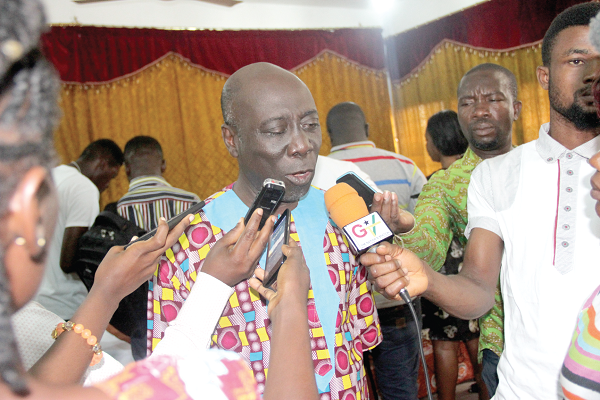Persons with disability (PWDs) have called on the government to make the National Accessibility Standards a priority in its undertakings to enable them to live independently and participate fully in all aspects of life.
They said although their rights were guaranteed by both the country’s laws and international conventions, they complained that in reality the provisions had offered them little protection against discrimination.
Speaking on behalf of the PWDs at a news conference in Accra yesterday, the President of the Ghana Society of the Physically Disabled (GSPD), Rev. John Mefful, said the GSPD and PWDs found it sad that 12 years into the passage of the Disability Act, Ghana was finding it difficult to implement the law.
“Twelve years after the enactment of the Disability Law, it is unfortunate that Ghana still has the challenge of finding measures to remove all artificial barriers that prevent PWDs from accessing public buildings and facilities,” he complained.
Further complaints
Rev. Mefful further complained that buildings were springing up daily, while road construction works were going on but most of them were without disability access, not even for sidewalks or bus terminals.
He said there were also no signages in buildings and other public facilities to that effect, adding that in many cases where provision was made for accessibility, the designs were not suitable and not up to standard.
“Ramps are often too steep, slippery, narrow or without handrails and thus cannot be used for any purpose. Lack of access to the built environment affects the independence, dignity, safety and full participation of PWDs in all aspects of life on equal basis with others,” he said.
Rev. Mefful noted that PWDs also had challenges using educational and health facilities, accessing employment and recreation centres, pointing out that those resulted in the exclusion of PWDs from decision making.
“It is, therefore, imperative for the Ghana government and other institutions to work together to provide ramps or lifts in public places to provide access to such facilities for PWDs,” he appealed.
Way forward
To create awareness and discuss the best way forward to implement the National Accessibility Standards, Rev. Mefful said a meeting was held at which suggestions were made.
Some of the suggestions, he said, were that the Disability Act should be backed by a Legislative Instrument (LI) and amended to conform to the United Nations (UN) Convention on the Rights of PWDs.
Others were that there should be continuous engagement with policy makers, contractors and the media, as well as public sensitisation to the need for accessibility for PWDs at all public facilities.
Meanwhile, Rev. Mefful has called for the monitoring and audit of all public buildings, including those under construction, to ensure their compliance with the accessibility standard.
“The accessibility standard should be included in the school curriculum at all levels,” he added.
Rev. Mefful also proposed that one per cent of the Ghana Infrastructure Fund (GIF) should be used to reconstruct old buildings and facilities to make them accessible.
“Legal action should be taken against owners of public facilities and buildings who do not comply with the standards. We are also calling on the media to assist us educate the public on the key provisions in the accessibility standard,” he said.

